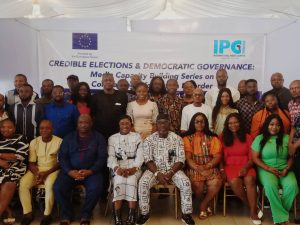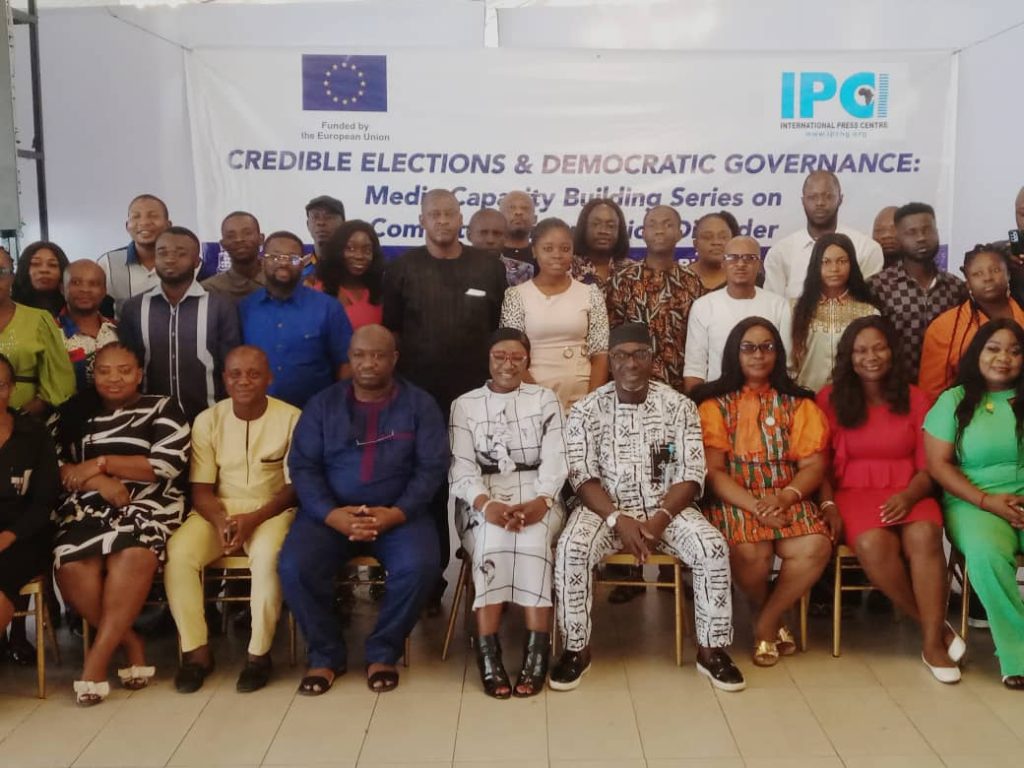IPC trains journalists on combating information disorder, fake news
Lawrence Nwimo, Awka
The International Press Center (IPC), has trained no fewer than 40 Journalists on combating information disorder and fake news using Freedom of Information Act (FOI) and Fact-check tools.
The two-day workshop was funded by the European Union (EU) and implemented by IPC as lead partner, and the Centre for Media and Society (CEMESO) under Component 4 (Support to media) of the European Union Support to Democratic Governance in Nigeria (EUSDGN II) project.

It was organized to build the capacity of journalists towards combating the spread of fake news and misinformation which has proven to be a menace to public peace and national security.
It was also aimed at equipping media practitioners with the relevant skills to effectively utilize the Freedom of Information Act (FOI) and fact checking tools as well as deepen their knowledge of inclusive reporting of gender on politics and election related matters.
The journalists were drawn from different media houses comprising the online, print and broadcast stations in South-East and South-South geopolitical zones, respectively.
Executive Director of IPC, Lanre Arogundade, explained that fact-checking has become a crucial aspect of journalism that helps to limit circulation of falsehood.
He said that the media plays a pivotal role in influencing public sentiment and upholding the integrity of electoral processes, but noted that amidst the vast expanse of information, combating misinformation, disinformation, and propaganda poses a significant challenge.
According to Arogundade, “The training program stands as a guiding light that offers a way forward towards a more knowledgeable, discerning, and robust media environment.”
At the workshop, Executive Director, Media Rights Agenda, Edetaen Ojo drilled the participants on how to effectively use the Freedom of Information Act to obtain information from public institutions and officials.
According to him, “journalists have not made significant use of the FOI Act in the last 12 years”.
He said that:”The Act remains a veritable tool to obtaining accurate and reliable information especially in the present era of evolving computer age.”
“The whole point of the Freedom of Information Act is for citizens including journalists to get information from public institutions and officials.
“Media professionals are in information business. As a result, it is important that when we have an instrument that enables us to ask and get information and have the assurance that the information is accurate and reliable, then we should utilize that instrument.”
In her presentation, a lecturer at the university of Port Harcourt, Dr Titi Osuagwu, urged the participants and other media professionals to shun gender discrimination in their journalism practice. She also encouraged them to be gender sensitive in their reporting of events and join hands in giving women voice in political and election matters.
Ikengaonline reports that the participants were drilled on the use of different fact-checking tools for image and video verifications as well as social media monitoring in relation to democratic governance reporting.
In their responses to interviews, two of the participants Grace Afurum and Pascal Ibe said the training had improved their understanding of the use of FOI and fact checking tools.
They assured to use the knowledge gained to produce accurate, factual and verifiable news reports at all times.

